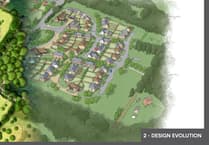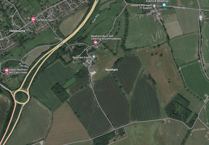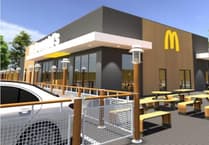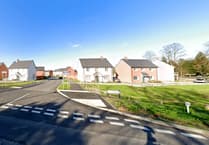FOR once, the message from Waverley Borough Council was unanimous and unequivocal as councillors refused to be cowed by Berkeley Homes’ latest attempt to force through a “do or die” amendment to its new Woolmead scheme on Tuesday night.
Citing the plummeting value of the retail element of its 138-home mixed-use development, and the need to deliver a “viable” profit margin, Berkeley Homes had sought to reduce the number of parking spaces in its scheme from 141 to just 80 by halving the size of its costly basement.
But, unlike in 2018 when councillors waved through a Woolmead development with zero affordable housing, this time committee members saw through the developer’s cap-in-hand plea – dismissing as “laughable” its claim that cutting parking would help improve air quality and overturning the recommendation of planning officers to unanimously refuse the amendment.
In committee papers, officers explained the build costs of the 2018 scheme – basement included – have increased by £1.3 million to £30m. And if built as approved, the scheme would deliver Berkeley a 17.7 per cent (£9.2m) return on its investment.
Whereas reducing the size of the basement would save £1.4m, raising Berkeley’s profit margin to 20.45 per cent (£10.6m).
The report added a “typical” profit would be between 15 and 20 per cent – but that as the Woolmead scheme “carries a risk at the higher end of the range, a profit level of 20 per cent was considered fair and reasonable”.
Officers also agreed with Berkeley’s claim that the development’s town centre location and “high public transport accessibility” offsets a breach of Waverley’s own minimum parking standards, which demand at least one parking space per home.
This stance was universally slammed by councillors, however, with Hale and Heath End councillor Sally Dickson delivering one of many knockout blows by pointing at Berkeley’s handsome year-end financial results.
“Six days ago, Berkeley Homes announced a turnover of £1.9 billion, and pre-tax profit of £503m,” she said. “Its managing director Rob Perrin said that despite Covid-19, the company is still predicting a return of 15 per cent.
“So why are we in Farnham offering them 20.45 per cent?”
A total of 228 letters of objection were received by the council before the meeting, compared to just one in support.
A fear that cars could spill out from the development into local roads and car parks formed the basis of many of these complaints, with one local objector David Wylde telling members: “The reduction in parking spaces does not mean 61 fewer cars on the road, it means 61 cars on the prowl for car-parking spaces.”




